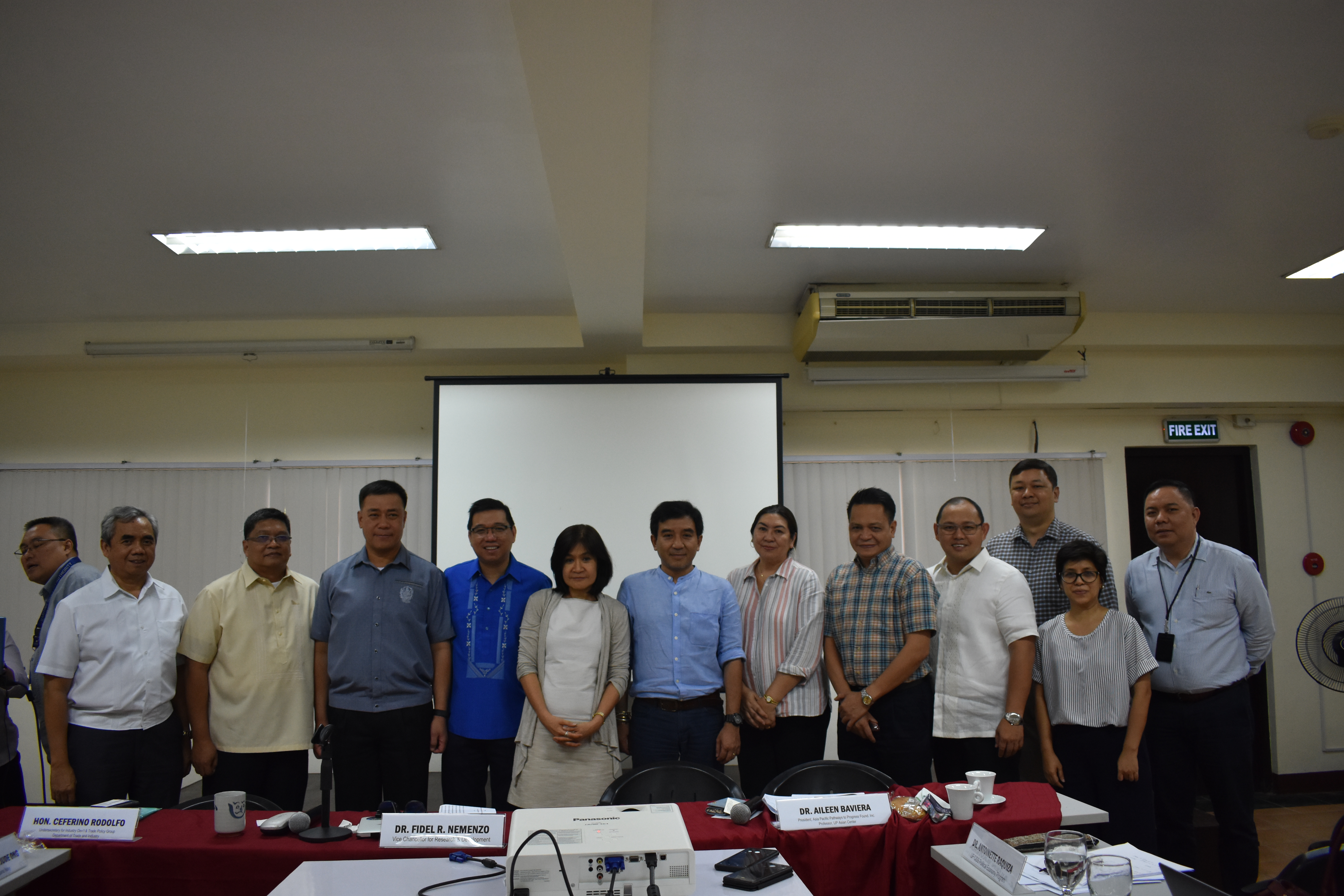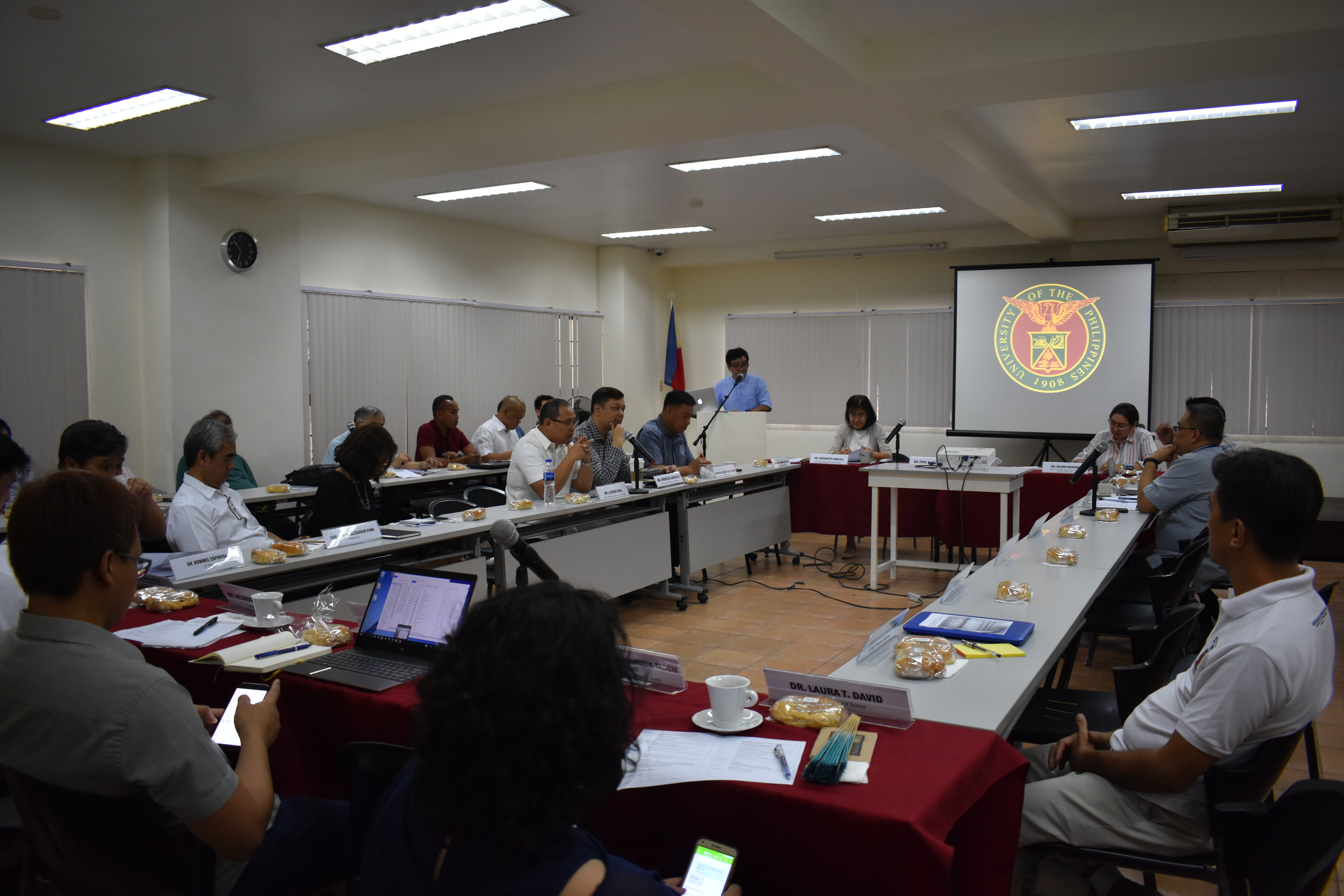Policy Dialogue on Hanjin Explores Proposals for the Future of the Shipyard

The UP CIDS Political Economy Program held two forums on the closure of the Subic-based
shipbuilder Hanjin Heavy Industries and Construction Corporation-Philippines and its
implications on security, industry, and labor. Both events brought together key
representatives from the government, industry, academe, and civil society organizations to
explore the strategic role of the shipyard in maritime security and industry.
On May 7, 2019, a policy dialogue, entitled “Reimagining Hanjin: Economic and Security
Prospects,’’ focused on the status of Hanjin Subic Bay complex and the possible role it can
play in promoting maritime security and development. Key speakers for the dialogue were
officials of the Philippine Navy, Department of Trade and Industry-Board of Investment
(DTI-BOI), and the Shipyards Association of the Philippines (ShAP).
Stressing security concerns and the growing needs of the Philippine Navy, Rear Admiral
Giovanni Carlo Bacordo presented the Navy’s proposal for the shipyard, which is for a joint
venture where the shipyard will be owned by the Philippine government but managed by a
third party (i.e., local or foreign company). The facility could then provide for shipbuilding
and repair needs of government entities, such as the Philippine Navy, Philippine Coast Guard,
and the Bureau of Fisheries and Aquatic Resources as well as partner with domestic
shipbuilders for technology transfer. Another key component of the proposal is the
production of naval vessels in response to the trend of increasing global demand for these, as
opposed to declining demand for commercial vessels.
Speaking on behalf of the ShAP, Corporate Secretary Alfredo Ebita welcomed the Navy’s
proposal and suggested that the Subic facility include a maritime eco-industrial park that
could be jointly operated with interested domestic shipyards.
Responding to the proposals and security concerns raised in the open forum, DTI
Undersecretary Ceferino Rodolfo of the Industries Development and Trade Policy Group
explained that the fate of the former Hanjin shipyard is largely in the hands of the five
domestic banks that lent a total of $412 million to the facility. He, however, also said that the
national government still has a role to play since its approval is needed for the transfer of
ownership, especially because any investor, foreign or local, would have unhindered access
to contested waters and marine resources.

The policy dialogue with the Philippine Navy and the domestic shipbuilders was a follow-up
to the March 14 roundtable discussion, entitled “Saving Hanjin? Implications for Labor and
Industrial Policy,’’ in which government, labor, and research and advocacy groups met to
provide an update on the Hanjin negotiations as well as bring out different perspectives and
recommendations on resolution of the issue.
The RTD began with the BOI providing a background on and status of the Hanjin issue. Mr.
Reynaldo Lignes, chief investments specialist and sectoral champion for shipbuilding and
iron and steel under the DTI-BOI, gave the history and expansion of Hanjin and thus its role
in catapulting the Philippines to the world’s 5th largest shipbuilder. He cited the industry
practice of shipbuilders being fully paid only upon delivery of the vessel as a factor for
HHIC-Phil: partly due to the slow-down of global trade and thus in the demand for ships,
Hanjin had to contend with contract cancellation and deferred or non-payments. While he
said that the DTI-BOI is working with local banks to recoup the latter’s investments through the lease and sale of assets to a third party, it is also taking into account potential security
concerns, with the facility’s strategic location being a maritime asset.
Engr. Arsenio Lucas of MARINA, the agency in charge of the domestic maritime industry,
shared a few key points in the agency’s 10-year Maritime Development Roadmap. He cited
current initiatives, including assessing domestic shipyard capabilities and ensuring that they
can build vessels weighing 500 gross tonnage (GT) and below.
The RTD also focused on labor issues, with the president and other officials of the Samahan
ng mga Manggagawa sa Hanjin Shipyard, presenting their case and the Department of Labor
and Employment (DOLE) responding to the issues raised. Samahan President Efren Vinluan
called for support for the workers’ demands from the management that laid off around 7,000
workers toward the end of 2018. Labor demands include: release of the workers’ separation
pay and unemployment subsidy, and preferential reemployment for when the facility resumes
operations.
In response to the plight of the workers, Director Dominique Rubia-Tutay of the DOLE
Bureau of Local Employment stressed the need for retraining maritime workers so that they
are equipped with the necessary skill sets for emerging trends in shipbuilding (e.g.,
technologies for building automated, environment-friendly ships). For his part, DOLE
Bureau of Labor Relations representative Atty. Ramon Saura assured that workers’ claims are
prioritized over that of the creditors, and likewise called for support for the Security of
Tenure Bill pending in the Senate, which would minimize the subcontracting practices under
which the Hanjin workers were hired.
Representatives from the University and CSOs likewise gave their own recommendations on
possible arrangements and for the former Hanjin shipyard. Dr. Rene Ofreneo, Professor
Emeritus of the UP School of Labor and Industrial Relations, argued that the Hanjin situation
presents an opportunity to revisit existing industrial policies and even develop an integrated
industrial development program. Dr. Eduardo Tadem, Convenor of the UP CIDS Program on
Alternative Development, proposed that the shipyard be turned over to its workers, a practice
called workers’ recuperation that has had a history in other countries, especially in South
America. Meanwhile, Mr. Czar Joseph Castillo of the Labor Education and Research
Network shared a simulation on employment that they prepared, which shows that if the
Philippines could increase its exports by P1 billion, around 26,000 jobs would be created.
With the Political Economy Program, co-sponsors for the May 7 policy dialogue were the UP
Diliman Office of the Vice Chancellor for Research and Development, College of Science,
College of Engineering, and the Asia Pacific Pathways to Progress Foundation, Inc. The
March 14 RTD’s co-sponsors were the Freedom from Debt Coalition, UP CIDS Program on
Alternative Development, Action for Economic Reforms, Labor Education and Research
Network, and the Samahan ng mga Manggagawa sa Hanjin Shipyard.